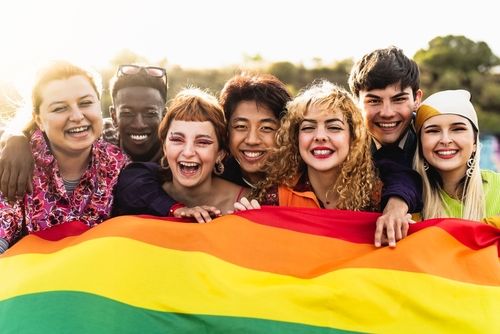 In Cuba, a country known for its vibrant culture and tumultuous history, a quiet revolution is underway. The Rev. Elaine Saralegui stands as a beacon of hope in the bustling port city of Matanzas as she leads a service in a church that welcomes the LGBTQIA+ community. The rise of inclusive churches suggests that Cuba is at a turning point when it comes to acceptance and equal rights for the LGBTQIA+ community, and it could signal more progressive change on the horizon for other countries in the historically conservative Caribbean.
In Cuba, a country known for its vibrant culture and tumultuous history, a quiet revolution is underway. The Rev. Elaine Saralegui stands as a beacon of hope in the bustling port city of Matanzas as she leads a service in a church that welcomes the LGBTQIA+ community. The rise of inclusive churches suggests that Cuba is at a turning point when it comes to acceptance and equal rights for the LGBTQIA+ community, and it could signal more progressive change on the horizon for other countries in the historically conservative Caribbean.
A History of LGBTQIA+ Rights in Cuba
The 1959 Cuban revolution, led by Fidel Castro, transformed the country both politically and socially. Amidst these changes, the government implemented policies that targeted marginalized groups, including the LGBTQIA+ community. Homosexuality was stigmatized, and the government subjected gay individuals to persecution, discrimination, and even imprisonment in labor camps.
The repression of LGBTQIA+ people in Cuba persisted for decades, with a significant societal shift happening only in the early 2000s. In 2010, Fidel Castro acknowledged the injustices faced by gay individuals, departing from the official rhetoric of past decades.
In 2022, Cuban citizens saw the passing of landmark legal reforms that granted greater rights and protections to the LGBTQIA+ community. The government overturned anti-gay discrimination laws and passed the "family law," which recognizes same-sex marriage and adoption rights for same-sex couples. This watershed moment paved the way for religious clergy to embrace inclusivity in Cuba.
LGBTQIA+ Rights and Tension Within the Catholic Church
The Catholic Church holds a prominent position in Cuba, and its stance on LGBTQIA+ rights has long existed as the foundation for conservative Cuban attitudes. However, Pope Francis' relatively progressive views about LGBTQIA+ people have caused controversy while also inspiring a new generation of religious leaders to be more open.
Officially, the Catholic Church's doctrine rejects the idea of same-sex unions and sees same-sex intimacy as unnatural. Despite this, Pope Francis has promoted a more inclusive stance by voicing support for LGBTQIA+ individuals and families and approving Catholic blessings for same-sex couples. Religious leaders and conservative Catholics have criticized the Pope for these actions.
Despite the Church's official stance on LGBTQIA+ issues, there are pockets of acceptance and advocacy within Catholic communities, including in Cuba. This reflects a broader societal shift taking place.
The Struggle for LGBTQIA+ Equality Across the Caribbean
Recently, several Caribbean countries have taken steps to address the historic repression of the LGBTQIA+ community. Court rulings in Belize in 2016 and Trinidad and Tobago in 2018 found anti-sodomy laws unconstitutional. Then, in 2021, a top Caribbean court ruled certain provisions of Antigua and Barbuda's "Sexual Offences Act" unconstitutional, following a case filed by a gay man persecuted for his sexual identity. These legal victories represent crucial milestones in the fight against discrimination and stigma.
However, despite these advancements, challenges persist across the region. In nations like Jamaica, Dominica, Grenada, Guyana, St. Lucia, and St. Vincent and the Grenadines, archaic laws criminalizing same-sex relations remain in place, supported by lawmakers and religious figures who invoke Christian doctrine to justify discrimination.
Despite these obstacles, grassroots movements and advocacy groups across the Caribbean continue to push for change. From Pride parades and legal challenges to inclusive churches, these efforts serve as a testament to the resilience and determination of the LGBTQIA+ community in the face of adversity.
As LGBTQIA+ inclusive churches continue to flourish in Cuba, there is hope for a more tolerant and diverse society. However, religious institutions do not seem inclined to want to reconcile doctrine and LGBTQIA+ acceptance, which suggests that there may still be conflict for some years to come. Regardless, Rev. Saralegui's church is a symbol of love and inclusion with its rainbow flag flying proudly in the Caribbean breeze.



